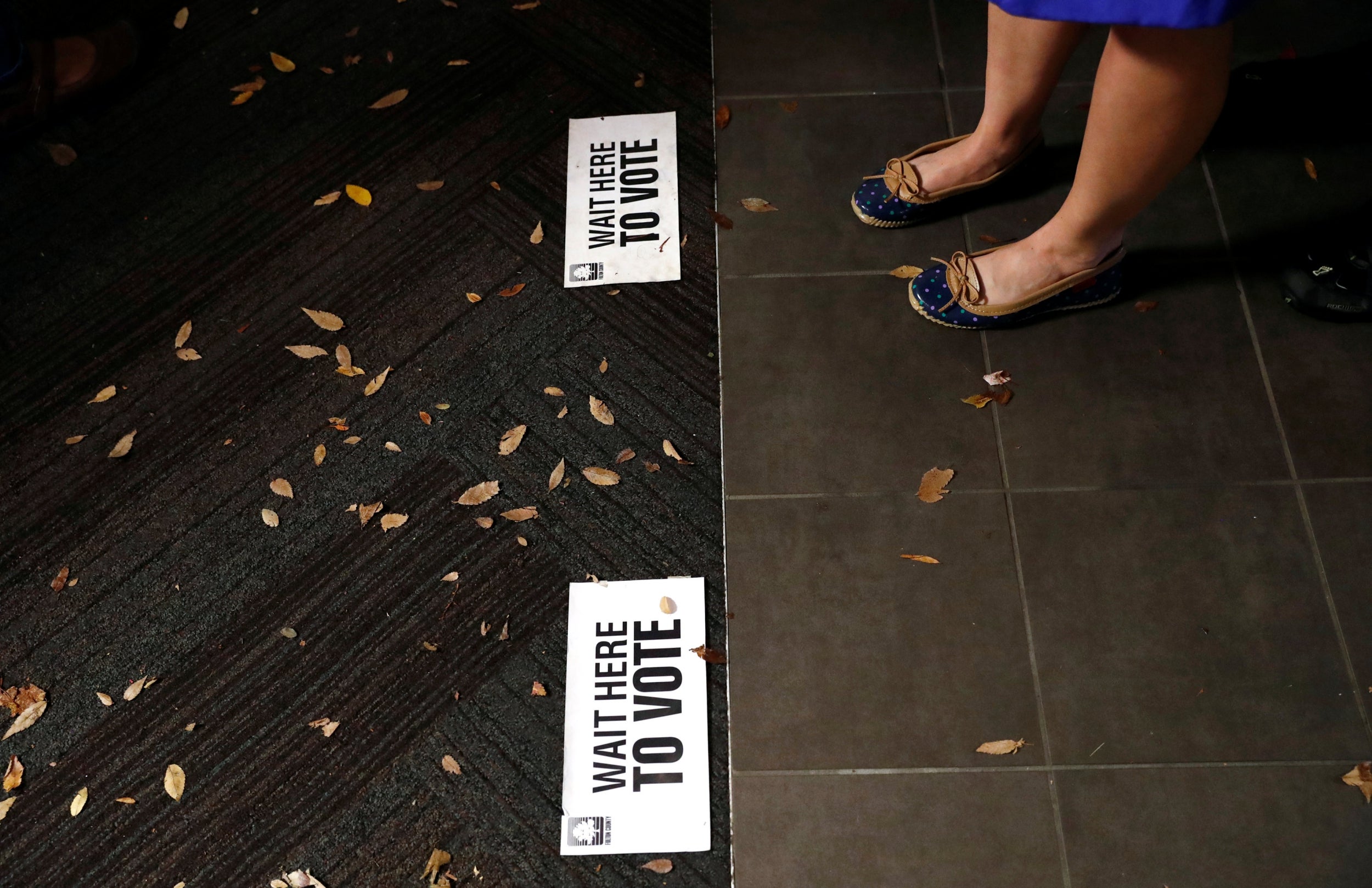Midterm elections: Rain, wind and storms affect voter turnout. Will this benefit Republicans?
Storms have left thousands without power, but many are voting anyway.

2018’s midterm election day is already seeing unprecedented voter turnout in spite of the rain.
From Florida to the Midwest, voters are having to battle rain and winds to exercise their right to vote. Large portions of the eastern half of the country are expected to experience rain, Tim Loftus, a meteorologist at AccuWeather told The New York Times.
Some areas, including North Carolina through southern New Jersey, will experience severe thunderstorms. Winds could reach 50 miles an hour in New York and Pennsylvania, and snow could affect the Great Lakes region and Northern Plains.
Studies have come to different conclusions on how much weather can affect voting and election results. A 2006 study found that rain reduces voter turnout by less than 1 percent per inch, and snowfall by .5 percent per inch.
The study suggests that weather may have contributed to the 1960 and 2000 presidential election results.
More recently, a 2017 study showed that bad weather can favour Republican outcomes. Democrats are more likely to avoid voting in bad weather, but Republican actually gain votes in bad weather. Based on psychology research, researchers argue that the mood created by bad weather makes voters lean more right.
Snow, storms, and wind cause people to feel more risk-averse and conservative, the researchers suggest. However, the impact on the overall election is small.

Weather can also affect voter turnout, and by extension, election results, in a more practical way. The storm has left 28,000 people with no power in Knoxville, Tennessee, meaning that some may have to prioritise safety over voting. However, polling stations are still operational, and those set on casting their ballots are using paper ones.
Join our commenting forum
Join thought-provoking conversations, follow other Independent readers and see their replies
Comments
Bookmark popover
Removed from bookmarks